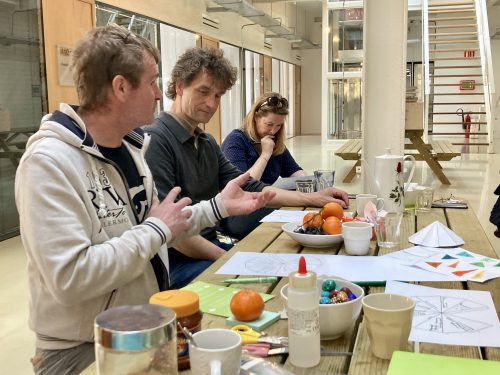EdiCitNet Partners Join Together for Annual Meeting in March 2022
The EdiCitNet Project held its latest Annual Meeting online at the end of March, bringing together many project partners from around the world for two days of exchange and discussion.
The 2-day meeting was very interactive, with partners using both zoom and Wonder to meet and move around from group to group to discuss different topics. After hearing updates from the EdiCitNet partner cities, insights from the Living Labs, the Masterplan process and discussing problems, solutions and future challenges, there were topic-based discussions in the afternoon. The main topics up for discussion on the first day were:
- Sustainability of City Teams
- Implementing the Transition Pathway Methodology
- Circular systems within public green spaces (Natural Resources, water, biodiversity)
- Education – educating across generations, within schools, and kindergartens
- Access to land for urban food projects
To end the day there was also a discussion about the upcoming Visit the Lab events and the planned city exchanges, where project partners will travel and meet their colleagues from around the world, to learn from their experiences, best practices and challenges with edible nature-based solutions.
The big overarching theme of this meeting was the Edible Cities Network itself and the question of how can we build a network that continues after the project ends and makes the world a better place? The EdiCitNet partners reflected on this question many times during these two days and will continue the discussion after the meeting.
The highlight of the second day was a talk and workshop on gender. Dr Jess Halliday from RUAF gave the EdiCitNet partners an insight into the topic of food and gender, after which we discussed problems and goals with the gender and intersectionality lens in different groups, according to fields of work. The learnings and exchange in this session will also be followed up over the next few months to ensure that gender aspects are adequately reflected upon and integrated into future work within the project moving forward.
We thank all speakers and partners for the active participation and exchange and are already looking forward to the next meeting! The next EdiCitNet Annual Meeting is organised for September 2022, and will hopefully be held in presence, in Ljubljana, where it will be hosted by project partner the University of Ljubljana.


